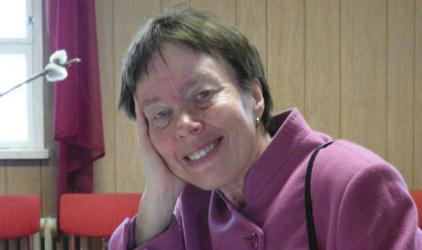Where History is Not Bunk (Sirkka Ahonen)

My first experience of a “history war” is from Finland during the Cold War. In 1980, in the yearbook of the Georg Eckert Institute for International Textbook Research, an American colleague analysed Finnish history textbooks, coming to the conclusion that they were “finlandised.” The term “finlandisation” referred to a politically conditioned self-censorship among the Finns, who, as losers in the Second World War, were cautious not to provoke “the bear,” the Soviet Union, by any criticism. The term offended Finns, who regarded “finlandisation” as a justified pragmatic way of protecting Finland. I responded to the Georg Eckert Institute and accused the American colleague of educational gunboat diplomacy.
My second challenge came with the collapse of the Soviet Union around 1990. What would the post-communist societies do with history without the umbrella of Marxist determinism? I went to the Baltic countries, where the old history textbooks had become obsolete overnight, and observed the politics of history education. A quest for “the truth about the past” had been one of the banners of the anti-Soviet demonstrators of the 1980s. “The truth” was now based on the ideology of nation-building. History mattered as much as before, but it was used to legitimise the new regime and denounce the old one. Using Estonian history education as partial evidence, I wrote the book Clio Sans Uniform: A Study of the Post-Marxist Transformation of the History Curricula in East Germany and Estonia, 1986-1991 (Suomalainen Tiedeakatemia, 1992). Soon, an all-European survey into the historical consciousness of young people, Youth and History: A Comparative European Survey on Historical Consciousness and Political Attitudes among Adolescents, edited by Magne Angvik and Bodo von Borries (Körber-Stiftung, 1997), revealed that in Estonia a history war had broke out between ethnic Estonians and ethnic Russians. The latter felt their historical identity renounced by the new regime.
 My third opportunity to look at history education in a place where history was not “bunk” but an essential tenet of collective identity was a job I was offered to teach history in post-war Bosnia-Herzegovina from 2006 to 2008. I went there with the purpose of having a grassroots experience of the post-conflict use of history. In fact, the experience made me realize that contradictions in history were less a cause than an effect of the tragic war that lasted from 1992 to 1995. Bosnia-Herzegovina was a failed state after the 1995 peace settlement, as the state had no means to persuade the parties in the conflict, namely Muslims, Croats and Serbs, to conduct a healing dialogue about the past. Instead, they indulged in memorialising the mutually conducted wartime atrocities and in fostering historical analogies and mythical amplifications of them. The schools were ethnically segregated, and if not, at a minimum “the national subjects” were taught separately, which meant that history was looked at from idiosyncratic points of view. As the result of an active intervention by the international community, the textbooks were cleansed from explicit hate language, but multiperspectivalism was not applied. The three ethnic communities accused each other of lying about the past.
My third opportunity to look at history education in a place where history was not “bunk” but an essential tenet of collective identity was a job I was offered to teach history in post-war Bosnia-Herzegovina from 2006 to 2008. I went there with the purpose of having a grassroots experience of the post-conflict use of history. In fact, the experience made me realize that contradictions in history were less a cause than an effect of the tragic war that lasted from 1992 to 1995. Bosnia-Herzegovina was a failed state after the 1995 peace settlement, as the state had no means to persuade the parties in the conflict, namely Muslims, Croats and Serbs, to conduct a healing dialogue about the past. Instead, they indulged in memorialising the mutually conducted wartime atrocities and in fostering historical analogies and mythical amplifications of them. The schools were ethnically segregated, and if not, at a minimum “the national subjects” were taught separately, which meant that history was looked at from idiosyncratic points of view. As the result of an active intervention by the international community, the textbooks were cleansed from explicit hate language, but multiperspectivalism was not applied. The three ethnic communities accused each other of lying about the past.
Concerned for the perpetuation of the conflict by the misuse of history, I compared Bosnia to other post-conflict societies using the examples of the Finnish civil war of 1918 and South-African apartheid from 1960 to 1994. This resulted in the book Coming to Terms with a Dark Past: How Post-Conflict Societies Deal with History (Lang, 2012), using the Finnish case to show that time does not suffice to heal wounds, while the South African case proves the benefits of urgent reconciliatory history politics.
My didactical conclusions are that, firstly, classrooms are a vital forum for a healing dialogue about the past; and secondly, vernacular memories and cultural memorialising of the past need to be embraced in history classrooms in order to avoid divisive “double talk” about history.

